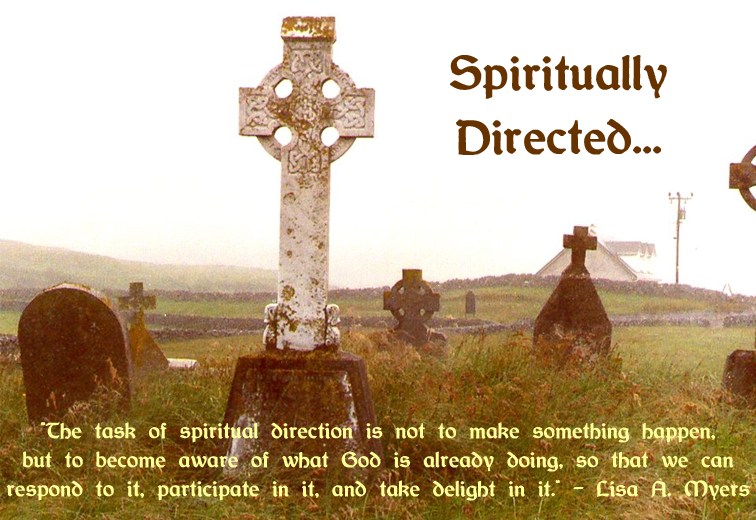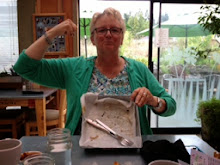One of the books that our CPE supervisor taught from in weekly Didactic sessions was "How Then Shall We Live" by Wayne Muller. It's a great book. We're reading through it in our Lectio Group. Everyone is enjoying it immensely. Thanks Delmas!
The following writing is my response/interpretation of a reading from the “How Shall I Live, Knowing I Shall Die” section of Wayne Muller’s 1996 book, “How Then Shall we Live.” Names in the story have been changed for privacy.
The 72 labors of
perpetual care
July 23, 2014
There is an
old Buddhist prayer that monks recite before meals that begins with this line: "First 72 labors brought us this food. We
should know how it comes to us.” Their
point being that we should become more aware of all the connections in our
life. Do you ever think about such
labors in regards to your own food? In
light of this prayer let’s consider my morning latte which is something I take
for granted on a daily basis. How many
people did it take for it to get to me? I’m
not exactly sure but here goes: the Farmer who prepared the field, the planter,
the picker, processor, roaster, miller, exporter, importer, dock workers, ship
workers, truckers, packagers, grinders, brewers, cup manufacturers, coffee
machine makers, the coffee stand owner and of course, the Baristas. That’s just 18 labors that I know of and
that’s without even discussing the milk!
What would
my life be like if I remembered all these connections? How much more grateful would I be for this
latte that sits in front of me? And how much more would I enjoy the latte
knowing how much I have received? Did
you know that gratefulness slows time down?
Over the
past 2 weeks I’ve had several conversations with people in which the idea of
giving and receiving was mentioned. Everyone agreed that giving was a lot
easier than receiving. For all of us
here at this table today, we know how to give.
It’s probably why we went into hospice work. We love to give. But many of us struggle with receiving. We almost bristle at the idea of
receiving. Why is that? I think it’s because we easily forget
reality. And that reality is that we
constantly rely on others for our well-being (and for our lattes.)
This was
made very evident this week at the office when our co-worker, Lina, quite suddenly became very ill. How frightening that was. And yet she was not alone. Her experience did not occur in a vacuum. Everyone gathered around her. Everyone felt her pain and her fear. And just as those 18 labors connected me to
my morning latte how much more were we all connected to Lina and one another? 911 was called. EMT’s arrived. Rhonda took blood pressure & monitored
vitals. Kristen lay on the floor with
her. Doug managed the phones and Julie rode to the hospital with her. Doctors and nurses cared for her. Maggie kept us posted as to her status. Her family gathered around her. Technicians took x-rays and MRI’s and CAT
scans. All those connections. All that love.
You could
feel the tension amongst those of us waiting here in the office as we continued
working while wondering how Lina was doing. I was thrilled when Julie called
looking for a ride back to the office from the hospital for then I too became
one of the 72 labors! We were connected
in our humanity. And it served as a good
reminder of what our patients experience from us as caregivers.
What we
forget to remember is that “we are in the perpetual care of others.”[1]
I looked up the definition of “perpetual.”
It means “never ending or changing, occurring repeatedly, so frequent as
to seem endless and uninterrupted.” We are not independent. We are in the
perpetual care of one another. We are
interdependent. We are givers and we are
receivers. We can’t be one without the
other. Perhaps in giving we heal
ourselves and in receiving we heal others. Or maybe it’s the other way around?
I invite you to pause today to think through the
72 or 32 or 18 labors of something or someone you take for granted. Maybe it’s the water coming out of your tap,
or the road you drove into work on today or the medication that keeps a loved
one well. Whatever it is, remember that
we have much to be grateful for within all of our daily connections, no matter
how mundane they may appear. Let us give
thanks for the opportunity to give to one another and to receive from one
another. May we continue to offer
perpetual care for one another, for ourselves, and for our patients. And may Lina recover completely from her
vertigo. Amen
[1]
How Then Shall We Live, Muller, p. 227
























